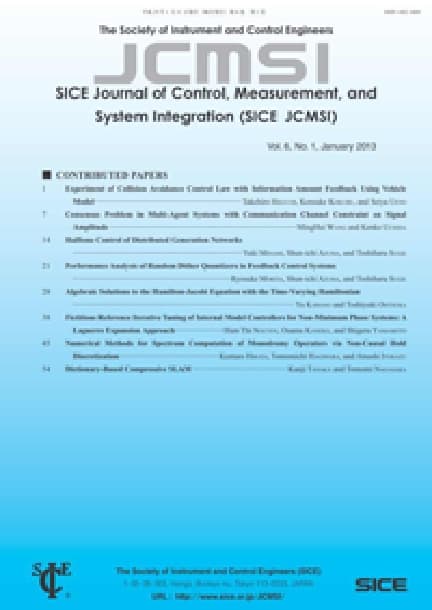Algebraic Controllability of Nonlinear Mechanical Control Systems
Kazuhiro SATO
pp. 191-198
DOI:
10.9746/jcmsi.7.191Abstract
This paper shows that the concept of algebraic controllability is equivalent to the concept of accessibility. Moreover, the paper gives a reduction condition for checking whether or not a given nonlinear mechanical control system is algebraically controllable. Through a quadrotor unmanned aerial vehicle example, it is demonstrated that the condition reduces a computational complexity for checking whether or not the system is algebraically controllable.
Readers Who Read This Article Also Read
SICE Journal of Control, Measurement, and System Integration Vol.7(2014), No.4
SICE Journal of Control, Measurement, and System Integration Vol.13(2020), No.4
SICE Journal of Control, Measurement, and System Integration Vol.13(2020), No.4









